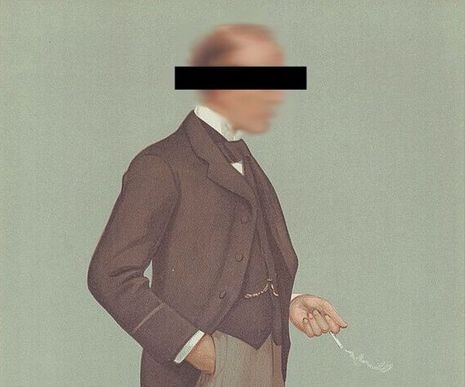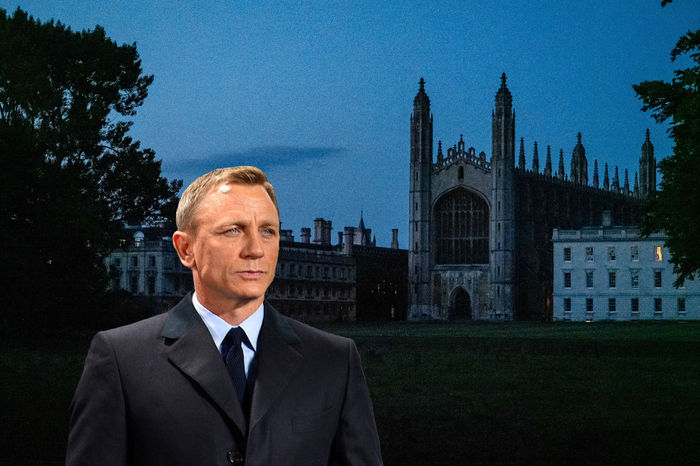Vintage Varsity: The spy who (once) loved me
Resident archivist Iris Mamier explores the tradition of Secret Service recruitment at Cambridge

Is the love affair between Cambridge and espionage dead? Watch a James Bond film from the 1960s, and you’ll realise how starkly different the image of the ‘spy’ is today. The classical secret agent, swanning about in his tailored suits, charming the doorman, and sneaking into balls appears eerily like the old stereotype of a Cambridge student – one produced by overconfidence and an expensive education. I took a look at the Varsity archives to explore this entanglement of myth and reality, and reflect upon the apparent ‘death’ of the Cambridge spy.
Cambridge was historically an MI6 recruitment hub, with each college rumoured to have its own ‘talent-spotter’. The exception to this rule, the story goes, was Trinity College after its infamous alumni – The ‘Cambridge Five’ – were revealed in the 1980s to have been spying for the Soviet Union during the Cold War. A Varsity issue from 1981 describes the five men as “The heart of the Cambridge spy ring” beginning in the 1930s, with Anthony Blunt, a fellow at Trinity, acting as talent spotter and recruiter.
“The age of the ‘tap on the shoulder’ is now long gone”

The untold tale of Cambridge’s history of espionage
In 2022, the BBC reported that the age of the ‘tap on the shoulder’ was long gone. No time of death was given, but in 2003 a Varsity article detailing the appointment of MI6 chief Sir Richard Dearlove as the new Master of Pembroke, suggested that recruitment at Cambridge had declined over the previous two decades. That year, the Home Office stated that “those who serve the public, should represent who they protect,” and online recruitment drives today are evidence of this continuing trend. In the same vein, Cambridge today no longer seeks only to educate the upper echelons of society, but arguably to educate society itself.
Part of the romanticisation of the ‘tap on the shoulder’ perhaps then speaks to the Cantab’s desire to once again join the chosen few. The Cambridge Five were famously all members of ‘The Apostles’, Cambridge’s secret society, and it remains part of the nature of the Cambridge bubble that its students are often privy to networks their peers at other institutions cannot access. Undoubtedly, there remains a nostalgia for Cambridge as a fast-track to joining the elite, which is embedded in the now imaginary ‘Cambridge spy’.
In Lent term, discussion on this topic was reanimated by the appointment of Pembroke college alumna, Blaise Metreweli, as Head of MI6. At a recent subject drinks, a former supervisor of Metreweli’s told me how she had received a call from the ‘higher-ups’ asking for personal anecdotes about the student she had taught, briefly, more than 25 years ago. It appears the old adage “it’s not what you know, but who you know” may still ring true. In 2003, Varsity concluded that “despite the new openness (in recruitment), the fast-track way into the Service is still undoubtedly by trusted personal recommendation”. And so, while in 2025 your name is unlikely to be found in a wax-sealed envelope, anyone interested in the life of a spy might still find it worth their while to suck up to their supervisors.
 News / Sidney May Ball cancelled6 November 2025
News / Sidney May Ball cancelled6 November 2025 News / Students launch women’s society excluding trans women31 October 2025
News / Students launch women’s society excluding trans women31 October 2025 News / Climate protesters rally against the Careers Service5 November 2025
News / Climate protesters rally against the Careers Service5 November 2025 News / New Christ’s library approved4 November 2025
News / New Christ’s library approved4 November 2025 Theatre / Hitler at the ADC? These guys pull it off5 November 2025
Theatre / Hitler at the ADC? These guys pull it off5 November 2025








